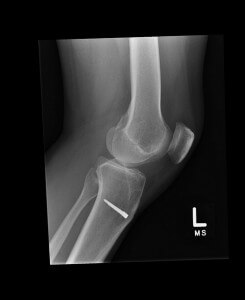
It's not always appropriate to post medical imagery online.
What Is Right and Wrong When it Comes to Posting Medical Pictures Online?

It's not always appropriate to post medical imagery online.
What Is Right and Wrong When it Comes to Posting Medical Pictures Online?
As a medical professional, you deal with confidential information every day. People come in for a medical exam because they are concerned about a health-related issue. They might be concerned about something shameful or embarrassing, but they are led to believe that they can trust their medical professionals with any concern whatsoever. Imagine a patient's horror when he or she finds out their medical professional posted pictures of them online. I wish I were kidding, but I am not. This has happened, and in some cases, it shouldn't.
Why Medical Professionals Should Think Twice About Online Activity
Aside from HIPAA regulations, which I'll overview in just a moment, medical professionals should never consider posting patient-related issues inappropriately, even if posting those issues might provide educational insight for other medical professionals. Your patients trust you with intimate details of their lives. They trust their bodies to you, and most likely share confidential information to aid in your diagnosis. Imaging is often used during examination to aid in properly diagnosing a patient as well, and your patient might not want their medical imaging posted online. Doing so anyway violates medical professional/patient confidentiality.
HIPAA Overview
It is also against the law to share patient information inappropriately per federal regulations. If you violate HIPAA confidentiality laws by posting patient imagery online, you might find yourself fired or without your medical license. Congress signed into legislation the Health Insurance Portability and Accountability Act in 1996. We call it HIPAA, and it was enacted to protect patient confidentiality. Protection includes securing and ensuring all electronic patient information – anything electronic discussing a patient, including his or her patient files, medical professional emails, and electronic imagery. Simply put, you can't post a patient's diagnostic imagery on your Facebook page, even if you are doing so to aid other medical professionals with their diagnoses.
Examples of Inappropriate Posting
What might seem like a good idea could turn out to be a HIPAA violation, as one doctor in Rhode Island found out. Even if you post a medically related picture without the accompanying patient information, those who know the patient might still figure out who the person is. It might seem helpful to post the details of a successful diagnosis and related treatment on your social networking page, but it most likely is not. If anyone figures out that the before and after x-rays belonged to so-and-so, you've violated HIPAA laws, and considering many patients are “friending” their medical professional's social networking pages, the patient him or herself might know you've posted a picture of them on your page. It's better to avoid posting anything medically related online. That way, you are not faced with determining yourself what is right and what is wrong when it comes to your patient's confidentiality.
When it Is Appropriate
This doesn't mean that as medical professionals we cannot share patient diagnoses and treatment regimens to aid in the advancement of medical care. We've been doing this for centuries, and sharing with our colleagues has brought about numerous advancements in medical care. How we've been doing it all along remains appropriate. Obtaining consent and properly documenting and journaling the results of patient studies, for example, remains one of the primary ways we learn about medical science breakthroughs. You won't find yourself in hot water if you follow protocol to have your latest discovery published in a professional medical journal or student textbook; you might find yourself in hot water if you post that picture and its related treatment on your Facebook page.